Tomato Processing Study, Algeria
Period 2023-2024
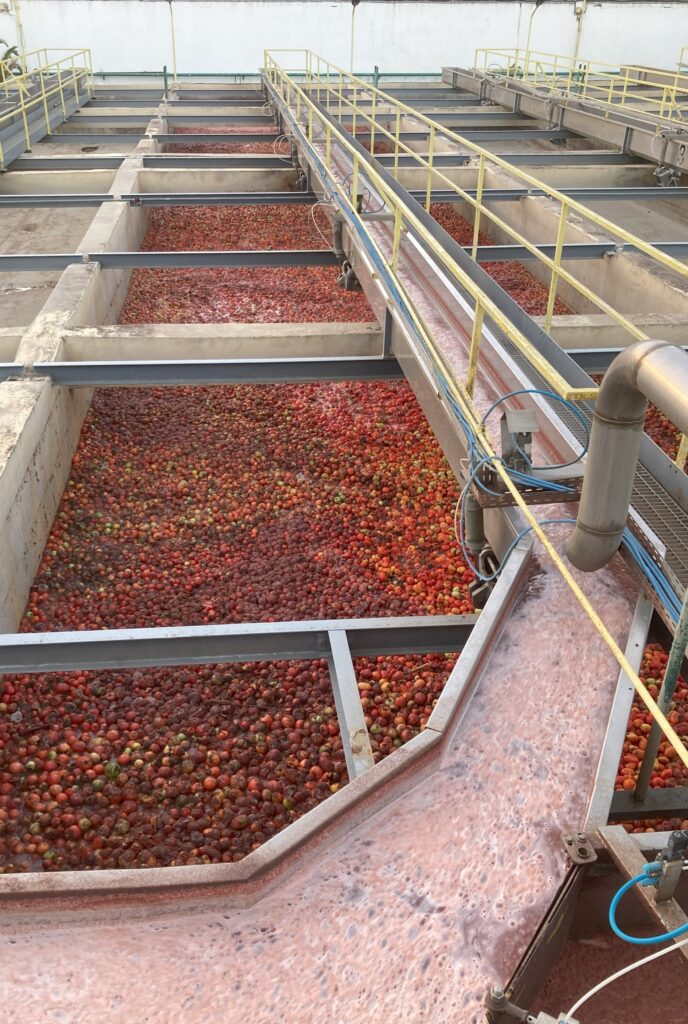
Algeria has a large horticulture sector that has grown with 24% to over half a million hectares of vegetable production over the period 2010-2019. The production of tomatoes represents 10% of the total vegetable production and around half is estimated to go to canned products. Processing tomato production in Algeria is exclusively for the national market (at present) and it is regarded as a strategic value chain by the Algerian government.
This study aimed to facilitate and stimulate more cooperation between the Dutch and Algerian sectors in the tomato value chain by providing clear insights in the organisation and performance of the value chain including a SWOT analysis, its key actors, a road map for sector development and the opportunities for cooperation.
In addition, the study delivered the ground works for follow-up programming for the development of future cooperation.
Commissioned by the Ministry of Agriculture, Nature and Food Quality and the Netherlands Enterprise Agency
Green Impact Centre
Period 2020-2024
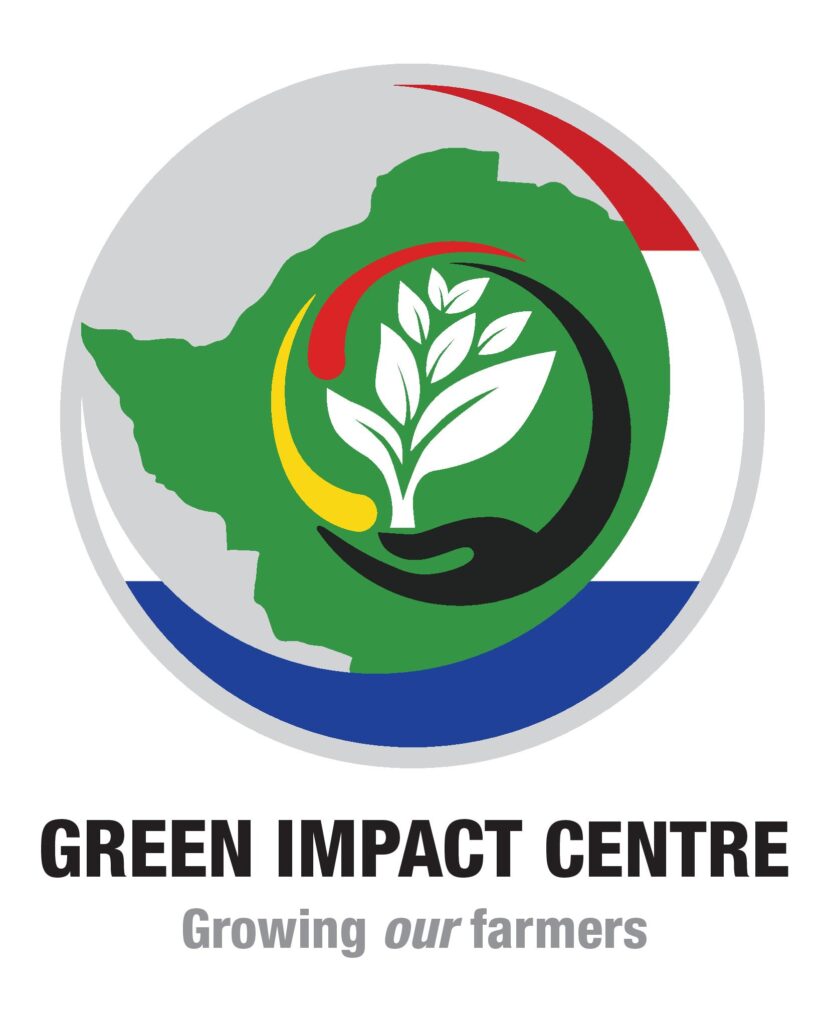
The Green Impact Centre is an horticulture demonstration and training centre which has been developed by Dutch horticulture suppliers of products, services and knowledge together with Zimbabwean private sector parties active in farming, trade, logistics and retail, local knowledge institutes, other sector stakeholders.
The main goals were i)supporting local farmers and other actors in the value chain in their business activities and sector development through introduction of new technologies, knowledge, skills and capacity building, ii) providing a “foothold” to the Dutch horticulture supplying industry to (re)start their business activities in Zimbabwe.
The programme was supported by the Impact Clusters facility of the Netherlands Enterprise Agency.

Greenhouse horticulture in Algeria
Period 2023-2024
With a population estimated at close to 44 million in 2020 and that is increasing by an estimated 1 million a year, Algeria has a growing number of mouths to feed. Algeria has a large horticulture sector comprising of over half a million hectares of vegetable production, with more than 21,000 ha of greenhouse production. In search of strengthening its food security the country has adopted policies to rehabilitate the agricultural sector in the face of two major constraints: access to land and water resources.
The objective of the study was to give an insight on the situation, (expected) developments, challenges and needs of Algerian protected cultivation and to link this with business opportunities for Dutch companies in greenhouse technology, starting materials and inputs.
Study carried out for the Netherlands Embassy in Algiers together with a local INRAA consultant and financed by the Dutch Ministry of Agriculture, Nature and Food Quality .
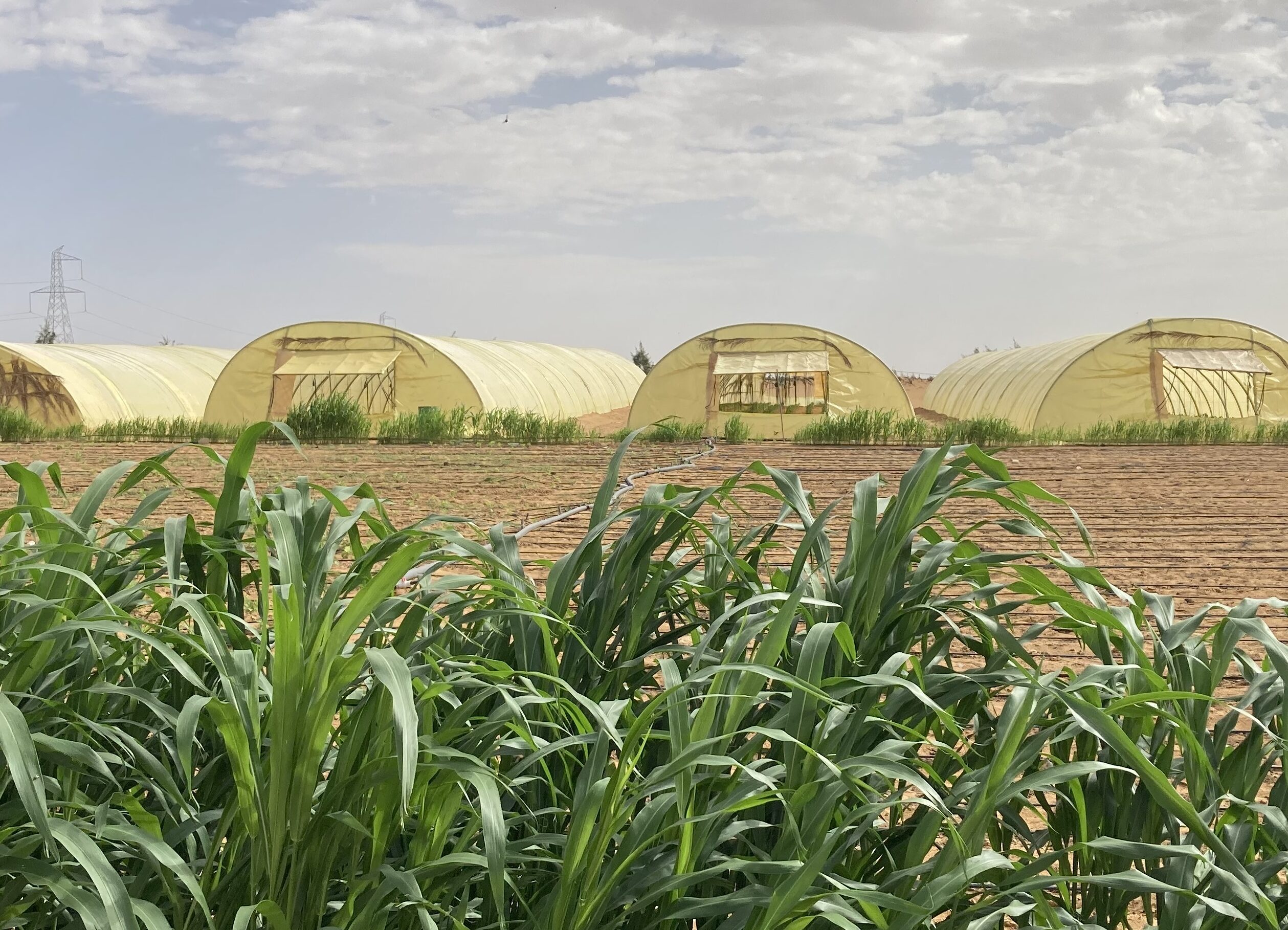
Capacity building
for Local Good Agricultural Practices in horticulture
Period 2022-2024
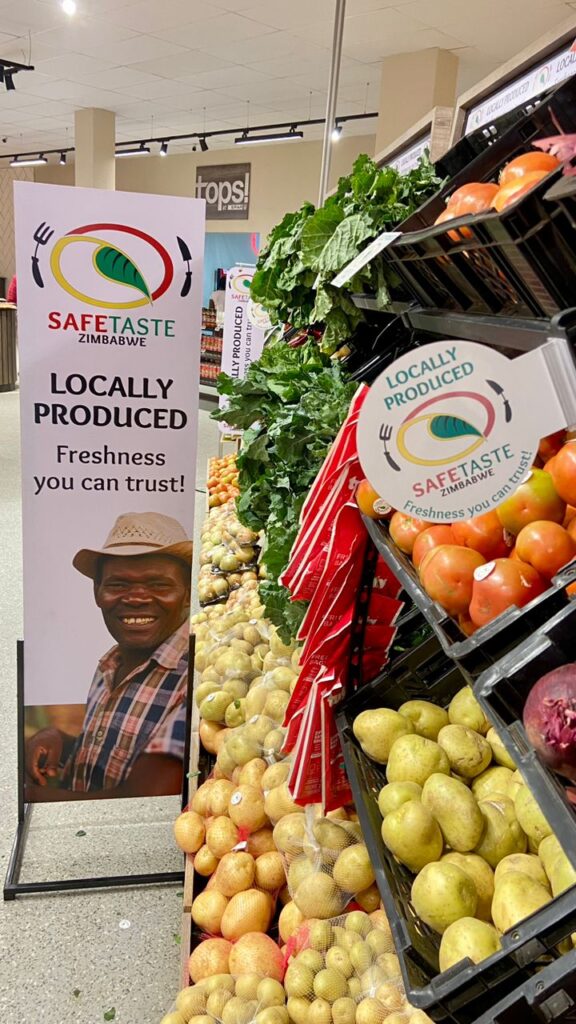
The aim of this project was to make verification of horticultural products more widely and easily available for horticultural producers in Zimbabwe and improve the food safety situation in the domestic market. Verification allows producers to prove their products comply with a certain set of standards, which will create competitive market access on the domestic market and in time the export market. To achieve this, a new, usable, local Good Agricultural Practices verification scheme for horticultural producers in Zimbabwe was developed.
The scheme SafeTaste Zimbabwe is practical, easy-to-use and fitted for the local producers, which will enable a wide range of horticultural producers to comply to the scheme. The new scheme was introduced and adopted in the horticultural value chain, while Zimbabwean inspectors were trained to perform verification inspections at farms.
The project was implemented by the Green Impact Centre consortium, in partnership with the Horticulture Development Council of Zimbabwe and FairMark. The Private Sector Development apps of the Netherlands Enterprise Agency provided the funding.
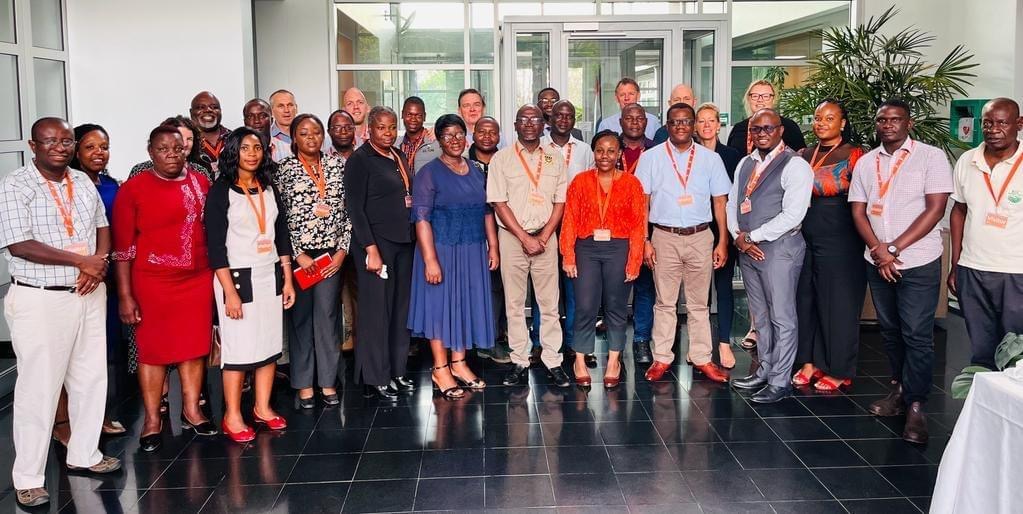
Orange Agribusiness Landing Site
Period 2020-2021
World Bank, FMO and other investors consider Uganda’s agricultural potential to be among the best in Africa. Estimates state that about 70 percent of Uganda’s working population is employed in agriculture. 80 Percent of Uganda’s land is arable but only 35 percent is currently being cultivated, and productivity is still considered low. With a continuously growing workforce, plenty of room for optimization and available farm land, there is still an enormous potential for growth in the sector. Based on these outlooks, several innovative foreign professional agri-businesses show interest in investing in Uganda. When these innovate professionals would indeed roll out their large operations in Uganda it would create a tremendous positive impact.
The purpose of this study was to validate the potential of an Orange Agribusiness Landing Site (OALS), an agricultural knowledge and innovation hub in Uganda, specifically focusing on boosting horticulture business by providing ‘landing’ services to international companies, technical research support, and business development support.
The assignment was carried out by EyeOpenerWorks, Bamboo Village Uganda Propagations and Green Works Consultancy for the Netherlands Embassay in Kampala, Uganda.
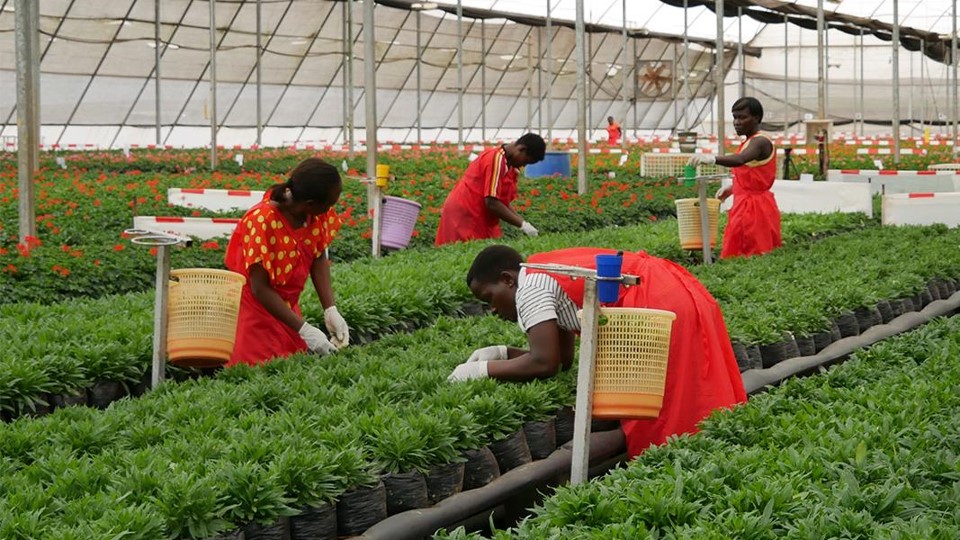
Developing gender friendly and sustainable fresh produce value chains in Zimbabwe
Period 2018-2019
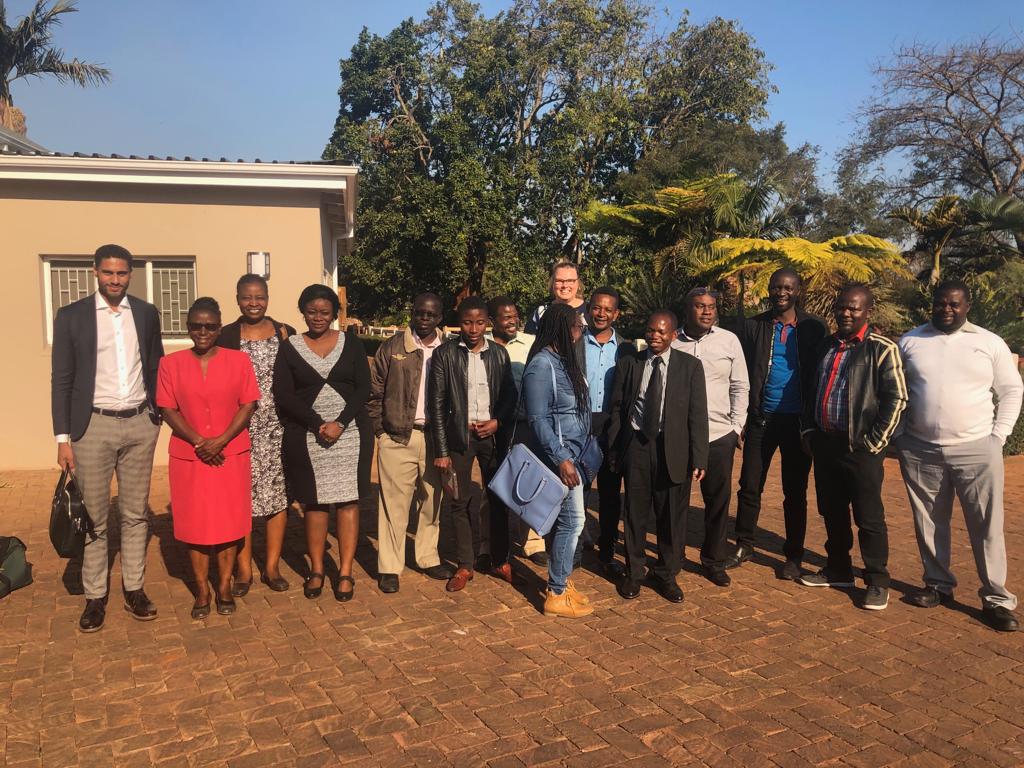
The purpose of this training assignment was building capacity in the higher education institutions of Zimbabwe in order to develop gender friendly and sustainable fresh produce value chains. This specific tailor-made-training programme was developed for Chinhoyi University of Technology in Zimbabwe, funded through NUFFIC, and carried out by Q-Point and Green Works Consultancy
The tailor-made-training programme supported Chinhoyi University of Technology in their aim of creating knowledge through increased research output and generation of new post harvest technologies, identifying and nurturing innovations in agro-based value chains, expand and strengthen university community outreach programmes in order to empower communities to play their role in minimizing crop post harvest losses.
Green Works provided the training on entrepreneurial and marketing skills development on market-led innovations for value addition in the fresh produce value chains, based on the Netchain Improvement Framework and the Business Model Canvas.
